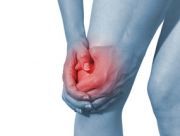Bisphosphonates Generally Ineffective in Treating Osteoarthritis Pain
Review of the literature finds that although zoledronate and alendronate may have some potential for effective pain management in patients with knee and hip osteoarthritis, overall there is limited evidence supporting the use of bisphosphonates to treat OA pain.

With no current treatments available that delay or halt the progression of painful osteoarthritis (OA), clinicians typically treat patients with OA with a combination of physical therapy, oral and/or topical analgesic medications (NSAIDs, opioids, etc), and joint replacement surgery (in advanced cases). However, several recent studies have looked at the use of bisphosphonates, medications most commonly used to treat osteoporosis, in the treatment of pain associated with OA.
To assess whether there is sufficient evidence to support the use of bisphosphonates in the treatment of OA, the authors of “Are Bisphosphonates Effective in the Treatment of Osteoarthritis Pain? A Meta-Analysis and Systematic Review,” published in PLOS ONE, conducted a literature search and identified 13 randomized controlled trials that compared the use bisphosphonates to “a non-treatment control, a placebo, another bisphosphonate therapy or to an alternative pharmacological intervention” in patients with knee, hip, hand, and/or back/spinal OA.
The primary outcome of this study was perceived pain, measured using “validated pain assessment scoring systems including visual analogue scale (VAS), a visual rating scale (VRS) or evaluation with the Western Ontario and McMaster Universities Arthritis (WOMAC) index.”
The study involved a total of 3,832 patients (80% women) with a mean age range of 47-75 years. A variety of bisphosphonates were studied, including clodronate, alendronate, risedronate, etidronate, and zoledronic acid.
Overall, the authors found little evidence to support the use of bisphosphonates in the treatment of painful OA. For example, two large studies on the use of risedronate to treat OA of the knee found no statistically significant difference between placebo and 5 mg daily risedronate or and 15 mg weekly risedronate. Larger doses (35 mg and 50 mg weekly) also were ineffective. Another study that compared the use of alendronate to estrogen and raloxifene in a large cohort of women with knee OA found “no significant association between overall use of anti-resorptive drugs and the presence of knee pain and radiographic changes of OA of the knee” However, use of alendronate, but not estrogen, was “associated with less severity of knee pain as assessed by WOMAC scores.”
In their discussion of these results, the authors wrote that “there is little clinical information available from published studies of the effects of bisphosphonates on the most significant correlates of pain in OA.” Even though several studies found some small benefit from specific types of bisphosphonates in treating specific forms of OA, the authors cautioned that “the studies described may only explain a small proportion of pain variance and other mediators, as yet uncharacterized, may be more important mediators of OA pain.”
They concluded that “Much is yet to be learned with respect to the progression of OA and the relation between level of pain experienced by OA populations in comparison to regions of structural change,” citing an “urgent need for further studies of bisphosphonates in OA in clearly defined subsets, coupled with robust radiographic analysis by cartilage integrity, BML size/composition, synovitis, joint space narrowing and evaluation of clinical biomarkers to more fully evaluate agents that could halt the onset and/or progression of OA.”
A news release from University of St. George’s London that accompanied publication of the article elaborated on the benefits observed from select forms of bisphosphonates, noting that “alendronate was found to be more effective for patients with hip osteoarthritis than existing pain relieving drugs,” while treatment with zoledronate and alendronate “improved pain in patients with knee and hip osteoarthritis at six months.”
Lead researcher Nidhi Sofat, MBBS, PhD, said that this study found that “generally, bisphosphonates are ineffective at managing pain associated with osteoarthritis.” She also said that more research needs to be carried out “to determine which patients could benefit most from this type of intervention. Osteoarthritis is a long term chronic condition, so it's essential that we work to understand whether the use of these medicines in the long term could be tolerated.”